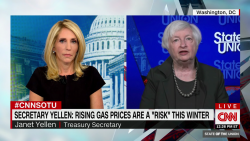Just one day after August’s disappointing Consumer Price Index report triggered a meltdown on Wall Street, a separate inflation report indicated that wholesale price increases are showing signs of improvement.
The Producer Price Index, which tracks average changes in the prices paid to producers of goods and services, was up 8.7% in the 12 months ended in August, down from 9.8% in July. It’s the second consecutive month that the pace of increase slowed.
Prices fell by 0.1% in the month from July to August, according to data from the Bureau of Labor Statistics released Wednesday.
Economists expected year-over-year PPI to rise by 8.8% and to fall by 0.1% from July, according to Refinitiv estimates.
Since PPI captures price changes happening further upstream, the report is considered by some to be a leading indicator for broader inflationary trends and what consumers could potentially see at the store level.
The continued decline in headline PPI mostly reflects commodity prices settling down from record highs, said Jason Reed, assistant chair and teaching professor of finance at the University of Notre Dame’s Mendoza College of Business. The decline in energy prices will “push PPI a little bit lower,” he said. “But overall, we’re still seeing elevated pricing levels.”
Stripping out the more volatile components of food and energy, core inflation increased 0.2% from July and is up by 8.1% for the 12 months ending in August.
Tuesday’s hot CPI report showed annual price inflation hit 8.3% in August. While that was a tick down from July’s 8.5%, the data also showed that core CPI, which strips out volatile gas and food prices, rose at twice the projected rate, dashing hopes that inflation has hit its peak.
Fed meeting on deck
America has been battling decades-high inflation in recent months, with the Federal Reserve implementing a series of historic rate hikes in an attempt to slow the economy and discourage further spending.
This week’s two key inflation reports will provide crucial context for Fed policymakers, who meet next week to determine the scope of the central bank’s next rate hike. Tuesday’s CPI report has already pushed some analysts to call for a 100-basis-point increase, up from recent expectations of a third-straight 75 basis points.
In the meantime, consumers are paying hundreds of dollars more each month as prices for food, shelter and health care surge. And plenty of uncertainty continues to loom, including Russia’s war in Ukraine and a potential US rail worker strike.
“The Federal Reserve can really only impact the demand side of inflation — it’s really hard to raise rates and unkink a supply chain or raise rates and help the war in Ukraine,” Notre Dame’s Reed said.
“If you have a big supply shock again, I think the Fed continues their course,” Reed added. “They can’t be seen as slow anymore.”






















